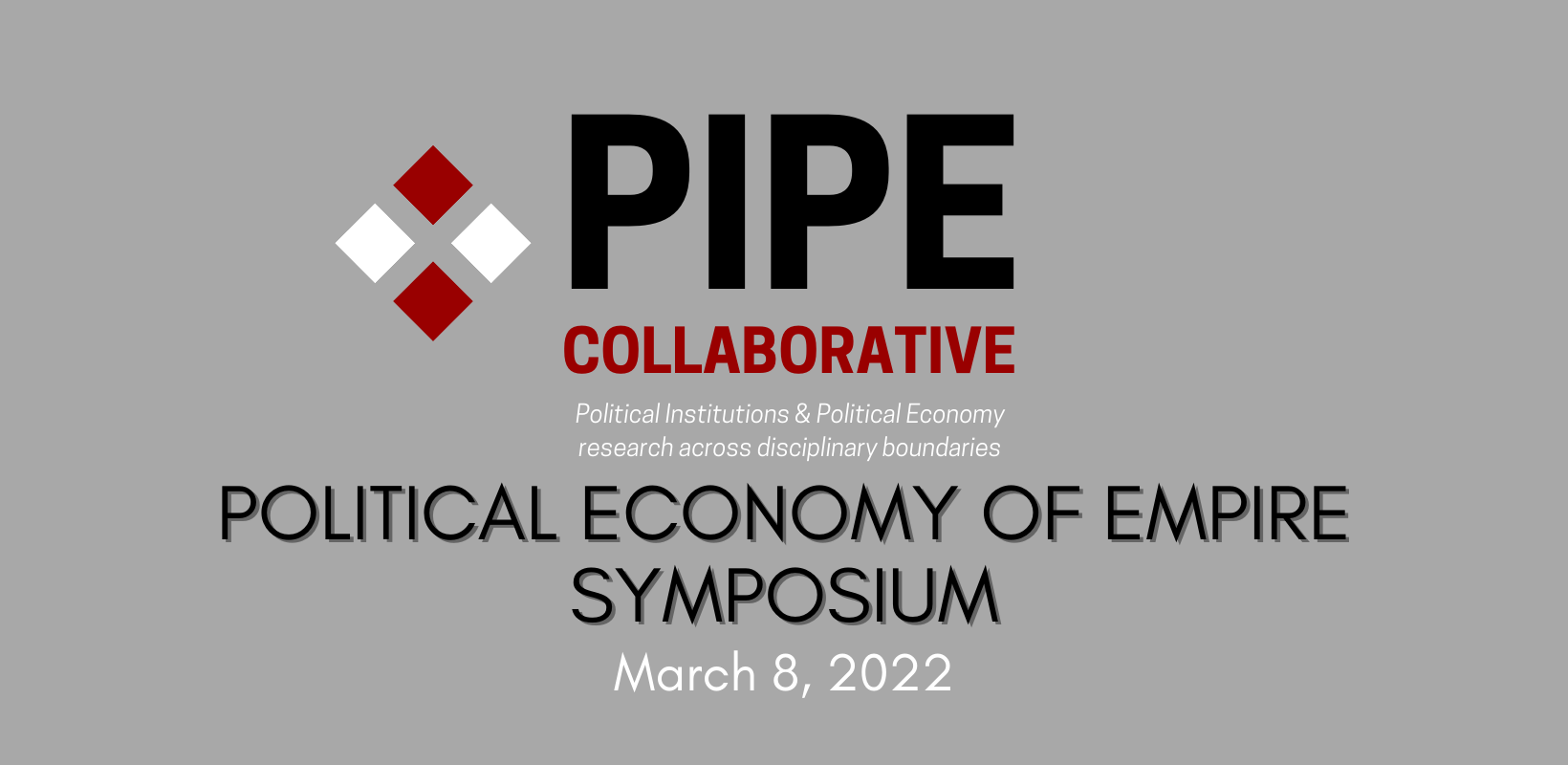
- This event has passed.
The Political Economy of Empire Symposium
March 8, 2022 @ 8:55 am - 2:30 pm
Free
Empires – or political units made up of several territories and peoples, typically created by conquest and divided between a dominant center and subordinate peripheries – have existed across recorded time, both ancient and modern. The political economy of empire as a scholarly enterprise can take several forms, including studying the costs required to maintain and defend the empire; the profits generated by peripheries (or “colonies”); the laws regulating trade within the empire and development within the colonies; and the conflicts within and across empires for current and future wealth. Scholars of comparative economic and political development have long studied empire, and modern formal and quantitative tools in social science – along with greater focus on and appreciation of the “deep roots” of history and their impact on contemporary political-economic decision making – have created new and exciting avenues for inquiry.
The Political Economy of Empire Symposium bring together scholars doing some of the most cutting-edge research, on topics like:
How the wealthy’s tax evasion behavior is shaped by the level of rule of law, and its consequences for fiscal capacity building – using an original dataset of Ottoman waqfs in modern-day Greece and Bulgaria between 1600 and 1912.
What role Christian missions played for European colonial empires? – using new historical data (1792-1924) to explore the timing of Protestant mission entries on the African continent.
How regimes determined the allocation of their budgets given competing economic priorities? – using data from eight individual regimes across the empires of Japan, Germany, Ottoman Turkey, and Brazil during the late 19th and early 20th centuries.
How does an empire fragment? – focusing on the Spanish Empire’s fiscal sociology, emphasizing the role merchant elites played in maintaining unity, and exploring how their interests misaligned in the late 18th century creating incentives for secession.
How sustained rivalry between states is connected to exploitation elsewhere (i.e., imperialism) – focusing on rivalries between France and England (1689–1815, with earlier origins) as well as Imperial Germany and the United Kingdom (1871–1918).
How – and at what costs – are formal property rights provided? – using data from the Philippines under American rule (1902-1939) as a test case.
Following the presentation of six papers on the aforementioned topics, the Political Economy of Empire Symposium will conclude with a talk by Sean Gailmard (UC-Berkeley) on his forthcoming book, Agents of Empire: English Imperial Governance and the Strategic Foundations of American Institutions. (Below is a very short overview of the book.)
“The United States in 1787 was not an institutional blank slate. Much of what the framers of the Constitution achieved was to borrow, reconfigure, and re-theorize their institutional inheritance from colonial and imperial governance under the British empire. Given that so few of the institutional structures in the Constitution were invented for the occasion, it is natural to ask why they were first deployed, and how they evolved, in the colonial territories that became the United States.
That is the central issue addressed in this book. Specifically, I focus on three questions. First, what were the institutions of British imperial governance in the future US? Second, why did they take the form they did? I will argue, based on extant historiography, primary sources, and theoretical analysis, that the answer is: to enable the British crown to control the colonies in its best interests as well as it could, given its limitations of coercive capacity, administrative capacity, and information about colonial conditions. This then leads to the third question: given the crown’s cognizance of the problem of colonial control and its desire to achieve it, how could it happen that colonial institutions, particularly assemblies, attained so much greater power in colonial government than the crown intended? Answering these questions together shows how the building blocks of contemporary American institutions emerged from strategic problems of imperial governance.”
AGENDA TO BE POSTED SOON
